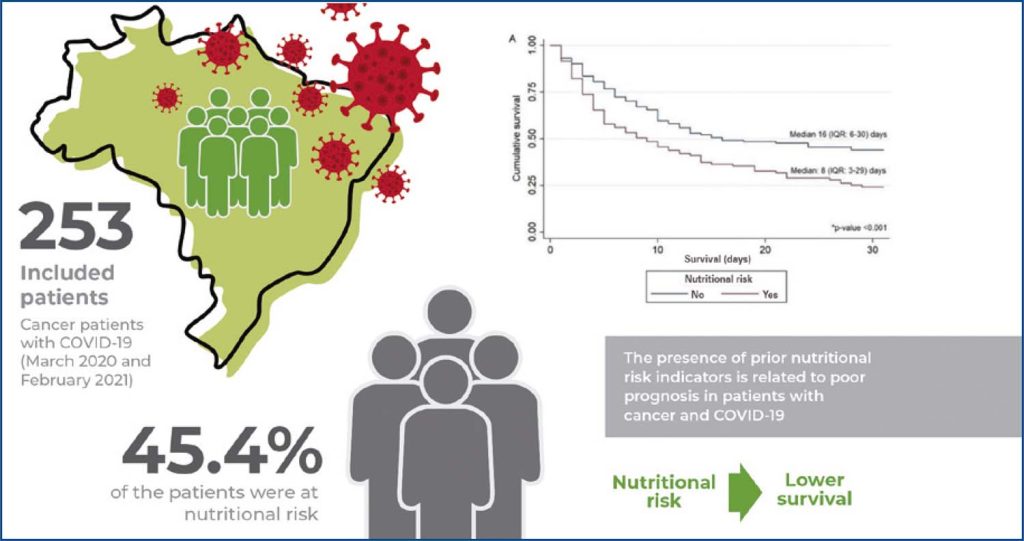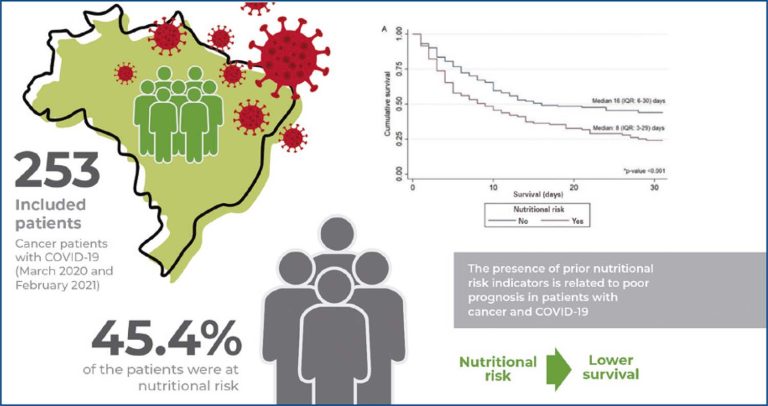einstein (São Paulo). 07/Mar/2023;31:eAO0172.
Cancer patients with COVID-19: does prior nutritional risk associated with cancer indicate a poor prognosis for COVID-19?
DOI: 10.31744/einstein_journal/2023AO0172
Highlights
Patients at nutritional risk had a lower survival than those not at nutritional risk.
Nutritional risk had good discriminatory accuracy to predict death.
Nutritional screening should be included as an essential part of care for these patients.
ABSTRACT
Objective
To verify whether the presence of related nutritional risk indicators prior to COVID-19 diagnosis is associated with poor survival in patients with cancer.
Methods
We retrospectively analyzed the data of hospitalized cancer patients who tested positive for COVID-19 between March 2020 and February 2021. Nutritional risk was defined as the presence of one of the following characteristics: body mass index <20kg/m 2 , scored Patient-generated Subjective Global Assessment ≥9 points or classification B, albumin level <3.5g/dL, and C-reactive protein level ≥10mg/L, evaluated between 7 and 60 days prior to the date of patient inclusion. The endpoint measure was all-cause mortality within 30 days of COVID-19 diagnosis.
Results
A total of 253 patients were included, most of whom were elderly (62.4%) and female (63.6%). Overall, 45.4% of the patients were at nutritional risk. Survival was significantly lower in patients at nutritional risk (8 days; interquartile range [IQR]: 3-29) than in patients not at nutritional risk (16 days; IQR: 6-30) (p<0.001). The presence of prior nutritional risk was associated with increased 30-day mortality (HR: 1.42; 95%CI: 1.03-1.94), regardless of age, gender, tumor site or stage, and other risk factors, and the model had good discrimination accuracy (concordance statistic: 0.744).
Conclusion
The presence of prior nutritional risk indicators is related to poor prognosis in patients with cancer and COVID-19, emphasizing the importance of nutritional care, notably during this pandemic.
192



